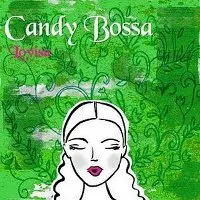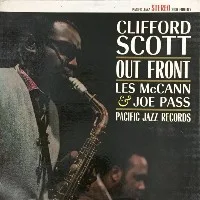Year: 2009
File: MP3@320K/s
Time: 55:30
Size: 129,1 MB
Art: Front
(3:41) 1. Desafinado
(3:59) 2. So Many Stars
(3:23) 3. Triste
(5:46) 4. Someone To Watch Over Me
(4:39) 5. Two Kites
(3:06) 6. Blue In Green
(3:07) 7. Dreamer
(3:01) 8. The Girl From Ipanema
(3:42) 9. Estate
(3:52) 10. Call Me
(3:10) 11. Meditation
(3:36) 12. Waters Of March
(2:57) 13. How Intensive
(3:53) 14. Once I Loved
(3:31) 15. Like A Lover
Lovisa Lindkvist. There is no doubt that music has always played a vital role in Lovisa's life, already from early years. Even as a little baby, Lovisa mimicked her mother as she practiced her singing. And so, it became natural from early on to express herself through her voice. With a voice far more mature than her 27 years of age, she belongs to the group of Swedish jazz vocalists that bridge the gap of the famous Swedish singer, Monica Zetterlund. At 10 years of age, she was accepted at the music education of Adolf Fredrik Elementary School, where choir singing is mostly taught. However, she soon realized that she wanted to pursue a career as a solo singer. In 2006, she released her debut album, "That Girl", which was mainly recorded live with only first-take recordings.
It contains famous songs from "The American Songbook", but also some originals, and was highly praised by critics all over Sweden, described as a "fantastic debut", and Lovisa was named as Sweden's next great jazz vocalist. At the same time, the album was released in Japan, and in the same year, she became the first-time receiver of the Monica Zetterlund scholarship. In 2007, she contributed with two songs on an album with the best ballads of Bo Nilsson, which also featured songs by Tommy Korberg, Monica Zetterlund, and Sylvia Wrethammar. Lovisa has performed at TV 4 Nyhetsmorgon, at various jazz clubs all over Sweden, as well as on national radio. She has been the opening act for Dionne Warwick, and performed at the Eliasson Award Dinner in Los Angeles. http://www.mymusicbase.ru/PPB/ppb33/Bio_3388.htm
It contains famous songs from "The American Songbook", but also some originals, and was highly praised by critics all over Sweden, described as a "fantastic debut", and Lovisa was named as Sweden's next great jazz vocalist. At the same time, the album was released in Japan, and in the same year, she became the first-time receiver of the Monica Zetterlund scholarship. In 2007, she contributed with two songs on an album with the best ballads of Bo Nilsson, which also featured songs by Tommy Korberg, Monica Zetterlund, and Sylvia Wrethammar. Lovisa has performed at TV 4 Nyhetsmorgon, at various jazz clubs all over Sweden, as well as on national radio. She has been the opening act for Dionne Warwick, and performed at the Eliasson Award Dinner in Los Angeles. http://www.mymusicbase.ru/PPB/ppb33/Bio_3388.htm
Candy Bossa




